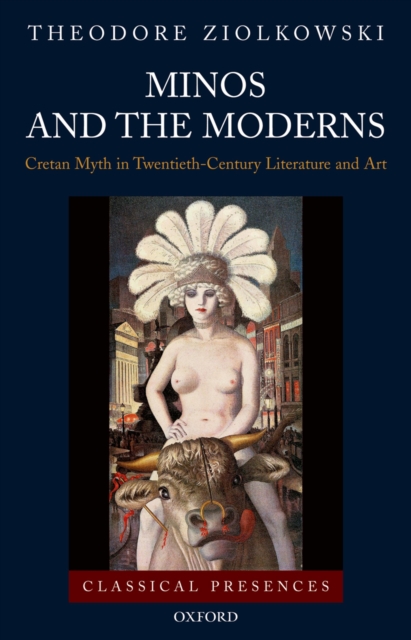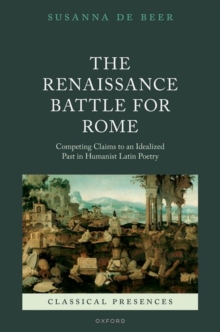
Minos and the Moderns : Cretan Myth in Twentieth-Century Literature and Art EPUB
by Theodore Ziolkowski
Part of the Classical Presences series
EPUB
Description
Minos and the Moderns considers three mythological complexes that enjoyed a unique surge of interest in early twentieth-century European art and literature: Europa and the bull, the minotaur and the labyrinth, and Daedalus and Icarus. All three are situated on the island of Crete and are linked by the figure of King Minos. Drawing examples from fiction, poetry, drama, painting, sculpture, opera, and ballet, Minos and the Moderns is the first book of its kind to treat the role of the Cretan myths in the modern imagination. Beginning with the resurgence of Crete in the modern consciousness in 1900 following the excavations of Sir Arthur Evans, Theodore Ziolkowski shows how the tale of Europa-in poetry, drama, and art, but also in cartoons, advertising, and currency-was initially seized upon as a story of sexual awakening, then as a vehicle for social and political satire, and finally as a symbol of European unity. In contast, the minotaur provided artists ranging from Picasso to Drrenmatt with an image of the artist's sense of alienation, while the labyrinth suggested to many writers the threatening sociopolitical world of the twentieth century. Ziolkowski also considers the roles of such modern figures as Marx, Nietzsche, and Freud; of travelers to Greece and Crete from Isadora Duncan to Henry Miller; and of the theorists and writers, including T. S. Eliot and Thomas Mann, who hailed the use of myth in modern literature. Minos and the Moderns concludes with a summary of the manners in which the economic, aesthetic, psychological, and anthropological revisions enabled precisely these myths to be taken up as a mirror of modern consciousness. The book will appeal to all readers interested in the classical tradition and its continuing relevance and especially to scholars of Classics and modern literatures.
Information
-
Download - Immediately Available
- Format:EPUB
- Publisher:Oxford University Press
- Publication Date:17/07/2008
- Category:
- ISBN:9780190450670
Other Formats
- PDF from £57.00
Information
-
Download - Immediately Available
- Format:EPUB
- Publisher:Oxford University Press
- Publication Date:17/07/2008
- Category:
- ISBN:9780190450670










